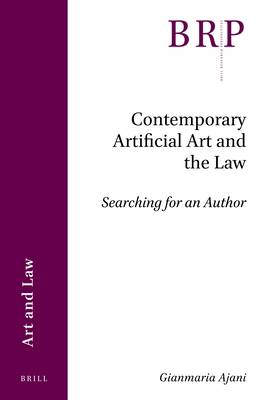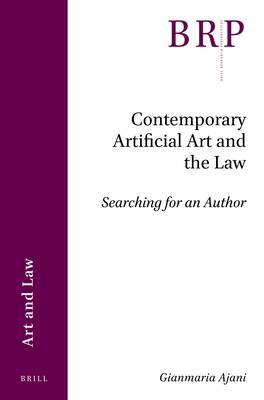
- Afhalen na 1 uur in een winkel met voorraad
- Gratis thuislevering in België vanaf € 30
- Ruim aanbod met 7 miljoen producten
- Afhalen na 1 uur in een winkel met voorraad
- Gratis thuislevering in België vanaf € 30
- Ruim aanbod met 7 miljoen producten
Zoeken
€ 143,45
+ 286 punten
Omschrijving
The advent of Artificial Intelligence (AI) as an "autonomous author" urges the law to rethink authorship, originality, creativity. AI-generated artworks are in search of an author because current copyright laws offer as a solution only public domain or fragile regulatory mechanisms. During the 20th century visual artists have been posing persistent challenges to the law world: Conceptual Art favoured legal mechanisms alternative to copyright law. The case of AI-art is, however, different: for the first time the artworld is discovering the prospective of an art without human authors. Rather than preserving the status quo in the law world, policy makers should consider a reformative conception of AI in copyright law and take inspiration from innovative theories in the field of robot law, where new frames for a legal personhood of artificial agents are proposed. This would have a spill-over effect also on copyright regulations.
Specificaties
Betrokkenen
- Auteur(s):
- Uitgeverij:
Inhoud
- Aantal bladzijden:
- 92
- Taal:
- Engels
- Reeks:
Eigenschappen
- Productcode (EAN):
- 9789004442665
- Verschijningsdatum:
- 1/10/2020
- Uitvoering:
- Paperback
- Formaat:
- Trade paperback (VS)
- Afmetingen:
- 155 mm x 235 mm
- Gewicht:
- 166 g

Alleen bij Standaard Boekhandel
+ 286 punten op je klantenkaart van Standaard Boekhandel
Beoordelingen
We publiceren alleen reviews die voldoen aan de voorwaarden voor reviews. Bekijk onze voorwaarden voor reviews.











